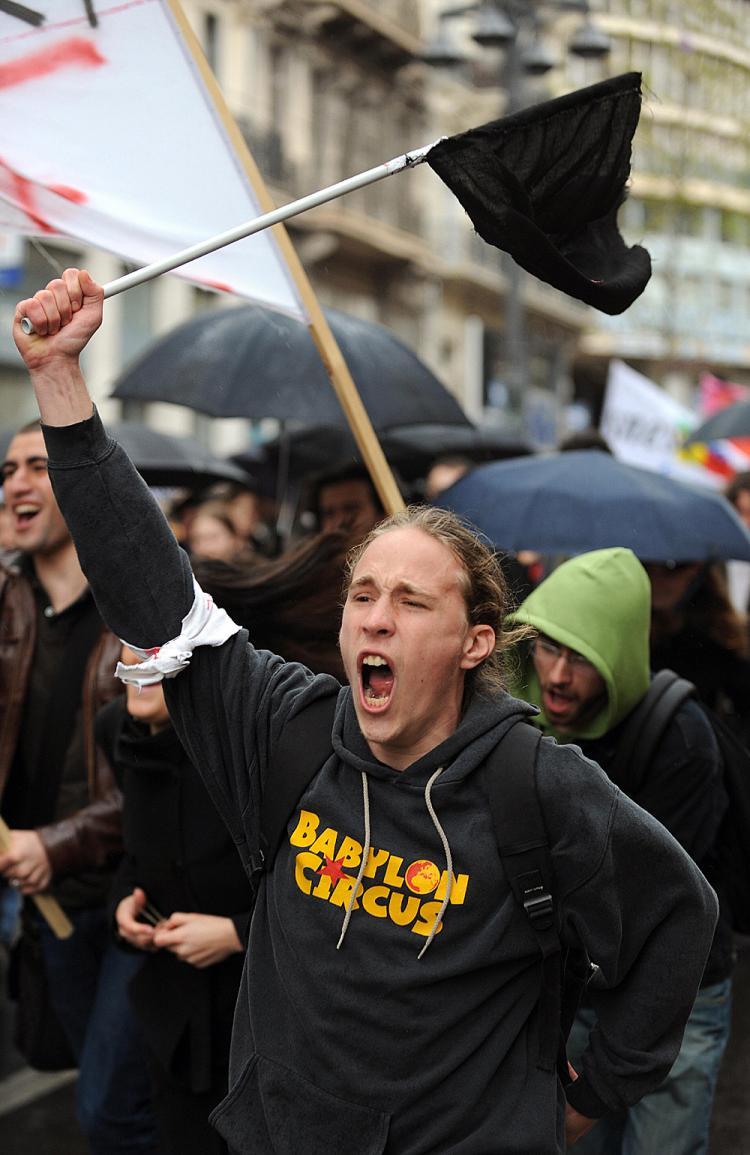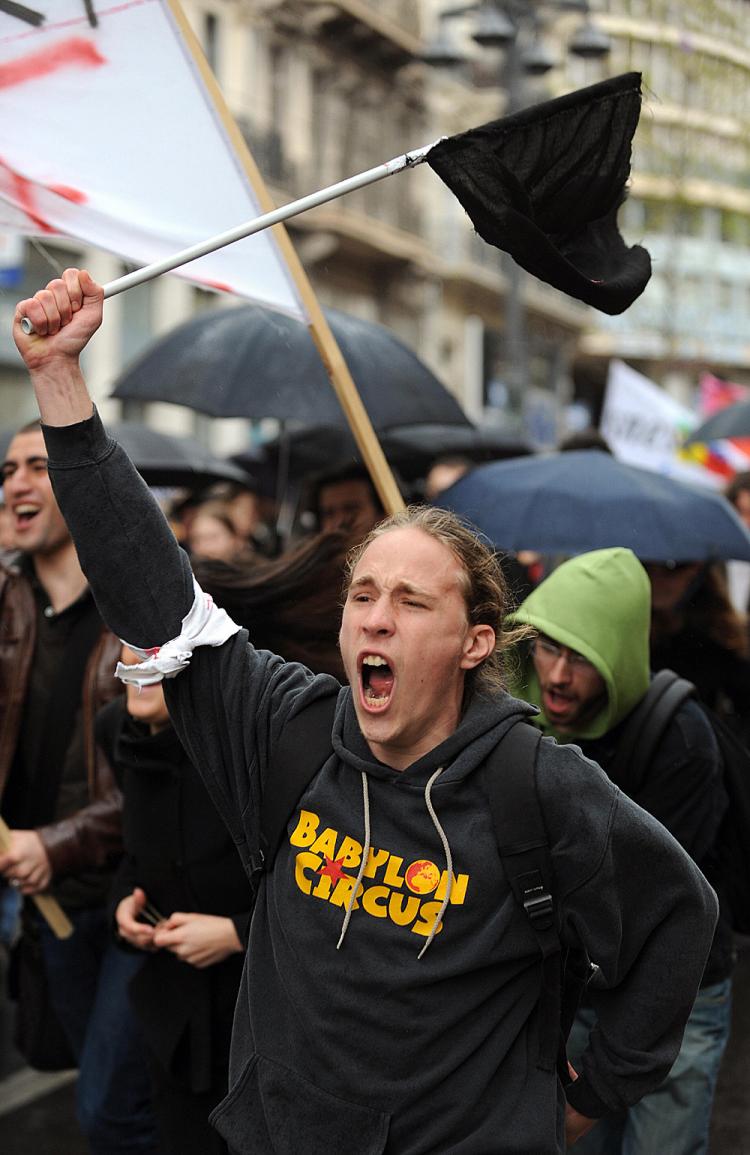In Rennes, west of France, the president of the university, Marc Gontard, had to flee from his office when more than 100 students broke the windows and entered the building.
“The president’s office has been attacked. We are up in the stairs waiting for external help,” said Gontard in a phone call to French press agency AFP.
Following this, close to 150 students in the eastern city of Strasbourg forced their way into the general council room, preventing 30 directors of research and study courses from leaving, according to media reports.
At the same time, in the central city of Orleans 60 students entered the office of University President Gérald Guillaumet, keeping him prisoner for the afternoon.
Finally, in Paris a student mob sequestrated the head of the organization in charge of granting scholarships and university rooms. Police had to use force to free the manager.
French university students have been striking for months over the government’s new plan to reform the education system. They claim it will make university teaching purely utilitarian. Students also fear that curriculum will be influenced by private companies if the latter were to fund universities. “Education is not merchandise” has become a motto for the strikers.
The government has accepted some changes, such as delaying the reform of teacher training, and maintaining the status of university teachers. The head of the Conference of University Presidents, Lionel Collet, thought this would be enough to resume classes, which turned out to be too optimistic.
In some places, radical leftist students are still stopping people from going to class. With the exam season approaching, radical strikers have also claimed that all students should automatically get their diplomas, so as not to suffer for having given so-call protection to the French educational system.
Coincidentally, in the context of this violence, a survey published by the French Institute of Public Opinion (IFOP) shows that 30 percent of French respondents understand and approve of such radical actions. This includes the phenomenon of so-called “boss-napping,” a neologism referring to the growing tendency of employees in difficult situations to make their case heard by sequestrating their manager.
The past few weeks have seen half a dozen such cases in France, including one in which François-Henri Pinault, CEO of luxury group PPR, was blockaded for hours by angry employees.







